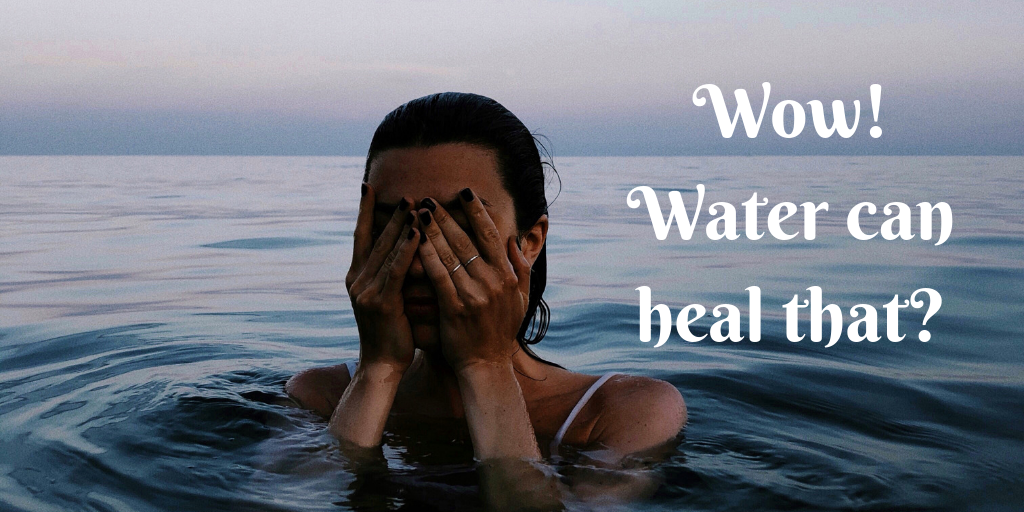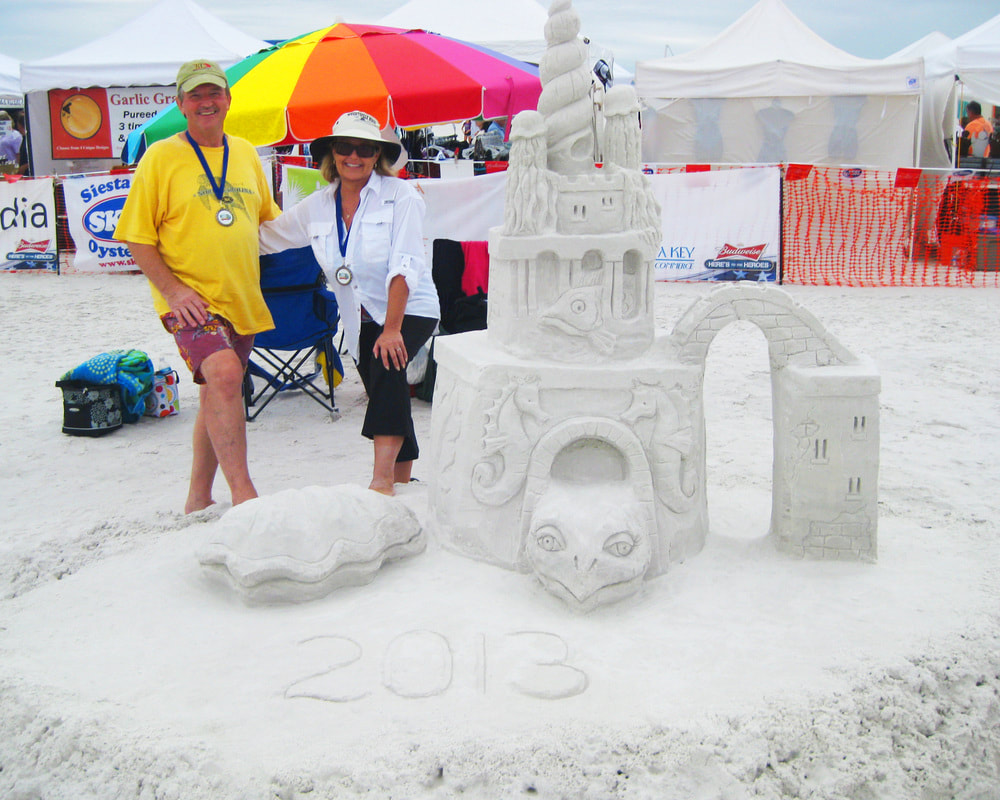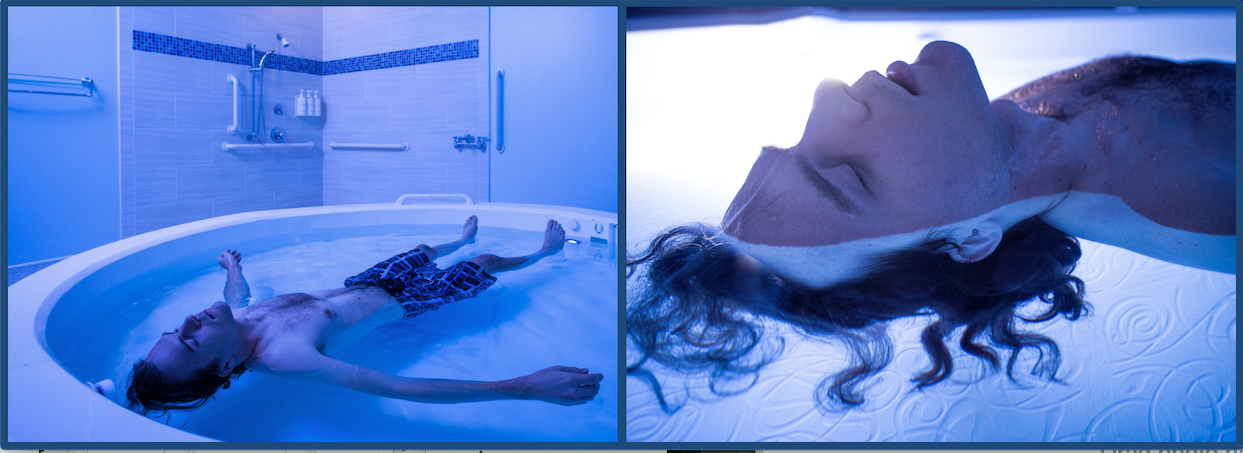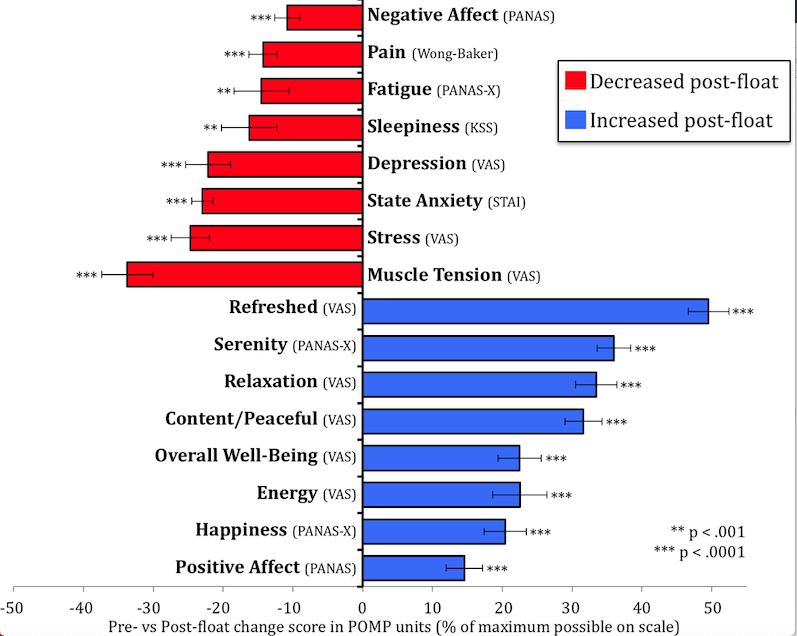|
This is not medical advice. Continuing to read this blog assumes that you have read this website's disclaimer. Part 3 of the series, Water-The Big Story In a world filled with information, how do you filter out what is right for you and your health? Clinicians are called to rely on evidence to make our clinical decisions and recommendations. Evidence comes in a variety of forms - folklore, anecdotal, qualitative research, and quantitative research. The gold standard being randomized controlled trials. The more evidence that suggests a particular modality has the ability to promote our health or wellbeing, the more likely it will be accepted into mainstream healthcare. The 8th Annual Blue Mind Summit was filled with these various forms of evidence linking health and well-being to water. Perhaps the most impressive research presented was on waters ability to reduce anxiety. Let's take a look at some of this evidence. ANECDOTAL EVIDENCE: Anecdotal basically means a personal account, or story of an experience. The reliability of a story is often based on how trustworthy the storyteller is. However, when large numbers of people, from various walks of life, start to report the same experience, it builds credibility. Nature, including water, falls into this realm easily because how it interacts with us is so abstruse. Pain Relief One of my favorite personal accounts on how water heals comes from a couple that call themselves the Sand Mates. Diane and Mike Lough work together to build exquisite sandcastles. Diane experiences chronic pain in her shoulder after she was electrocuted in an elevator. When she builds sandcastles by the sea, however, the pain miraculously disappears for a few days. Drug Addiction Rebecca Illing describes her experience with addiction as, "repeating things that are detrimental to my health." She didn't know how to find inner peace. Water was the anecdote. Here is her story: Video PTSD If water can help relieve the symptoms of post-traumatic stress disorder (PTSD) incurred by our soldiers, imagine what it can do for the rest of us? Force Blue Team, a group of special ops diver veterans, are just one of many veteran groups using water as part of their healing tools. As they report, water allows them to connect with something greater, experiencing a state of awe. Many who have been exposed to trauma are reporting that engaging with water has literally been life saving from the anxiety, stress and depression that can occur with PTSD. Of note, a Psychiatrist who works with Veterans has said that therapeutic recreation in nature is just part of the treatment plan for PTSD. Mental healthcare, such as psychotherapy, medications and/or other treatments are often required as well. Veterans experiencing feelings of suicide or PTSD should alert their healthcare providers immediately, go to an Emergency room or consult with Headstrong.org. QUALITATIVE RESARCH: Qualitative research is an exploratory process seeking to understand the why and how of a social phenomena. This type of inquiry might best be used to gather the themes and experiences of all the anecdotal evidence being expressed about waters healing power. An example using this type of research is a study done that examined pregnant women’s' views on using water exercise as a pain reduction tool. Lower back pain is common amongst pregnant women. The study found that the pregnant women studied do desire to exercise. The women reported water exercise was an acceptable way to do that. Water exercise did indeed have physical and mental well-being benefits. The greatest barrier to using this modality was found to be crowded pools. QUANTITATIVE RESEARCH: Quantitative research is a structured way of gathering and analyzing data from various sources. In 2017, a group of researchers reviewed the studies that were currently available that investigated the potential benefits of outdoor bluespaces (lakes, rivers, sea, etc) and human health. A study of this sort, where multiple studies are reviewed and analyzed, is called a meta-analysis. This meta-analysis found that the strongest evidence linking bluespaces and health existed in the arena of mental health and well-being. The relationship of outdoor blue activity and general health, its impact on obesity and cardiovascular health, however, was less consistent. Dr. Justin Feinstein, a Clinical Neuropsychologist and Director of the LIBR Float Clinical and Research Center, presented his research on floatation therapy at the Blue Mind Summit. It was by far the most impressive evidence of the summit. Fifty anxious and depressed participants, with various degrees of anxiety and stress-related disorders, participated in a study examining the effect of a single one-hour floating session with reduced environmental stimulation. Participants were asked to float supine in a pool of water saturated with Epsom salt for one hour. The results are impressive. Every study participant had a reduction in anxiety. Dr. Feinstein has been awarded a grant by the National Center for Complementary and Integrative Health to study this further. Imagine the implications float therapy centers might have on healthcare professionals experiencing burnout, college students studying for final exams and others who may not have a full-blown anxiety disorder.
Many of us already know, by our own experience, that water makes us feel better in some way, whether it be in our mind, body or spirit. As long as we can safely engage in it, and the water itself is healthy, there is no need to wait for a study or a prescription. We can choose to add this into our health and wellness toolbox. Float spas are popping up in many areas. A warm bath with Epsom salts may be just what we need to help sleep or ease the stress of a hard day. Sometimes just soaking our feet in warm water can soothe our soul. Does this information intrigue, and perhaps inspire you, to engage in water in a more intentional way? Do you have stories of your own that you would like to share on how water has healed you? Please share in the comments below. We welcome your thoughts.
2 Comments
|
Ready to sleep better, feel lighter, and feel more joy?
Download my latest ebook now: Archives
May 2024
Categories
All
Follow me:
|
|
© COPYRIGHT 2015-2023. ALL RIGHTS RESERVED.
|





 RSS Feed
RSS Feed